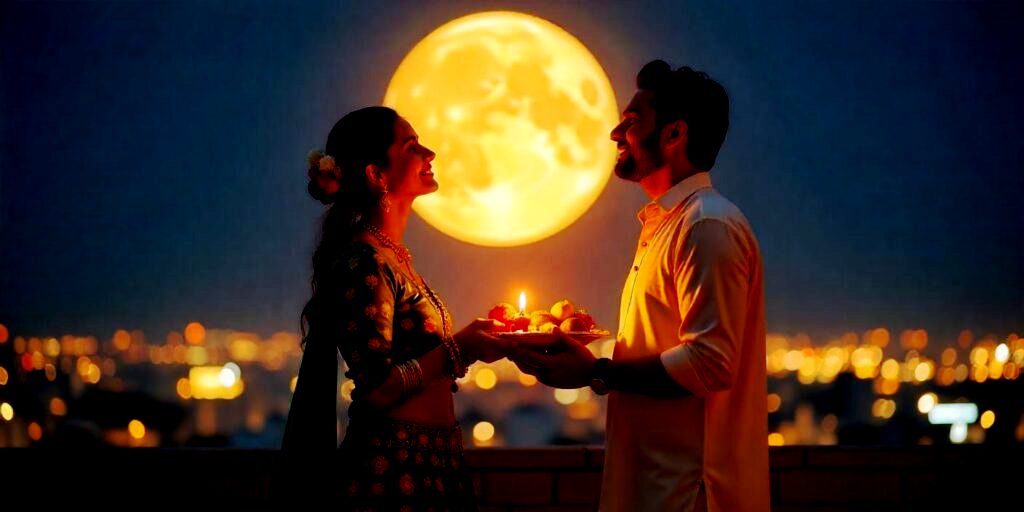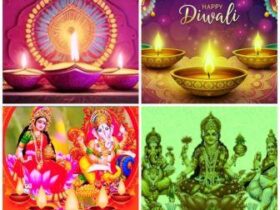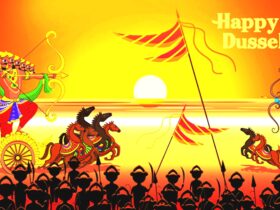Karwa Chauth is a significant festival celebrated primarily by married Hindu women in India, dedicated to the well-being and longevity of their husbands. On this day, women observe a day-long fast, praying for their husbands’ long life, prosperity, and good health. The festival falls on the fourth day after the full moon (Purnima) in the month of Kartik according to the Hindu lunar calendar. This vrat (fast) involves intricate rituals, cultural significance, and deep emotional connections, making it one of the most important occasions for married women.

Significance of Karwa Chauth
Karwa Chauth is not just a religious event but also a celebration of love and dedication. The festival strengthens the bond between husband and wife, symbolizing their mutual love and understanding. It is believed that by observing this fast with full devotion, women can ward off any ill fate and ensure a long, healthy life for their spouses.
Historically, Karwa Chauth also had a community aspect, where women, especially those in rural areas, would celebrate together to strengthen social ties. The word “Karwa” means earthen pot, and “Chauth” means fourth, referring to the fourth day of the Kartik month.
Rituals of Karwa Chauth
The rituals of Karwa Chauth are rich in tradition and are passed down through generations. Each element of the pooja and fast is symbolic, reflecting deep cultural values.
- Sargi: The day of Karwa Chauth begins before dawn with a pre-dawn meal called Sargi. It is typically given to the woman by her mother-in-law, and includes nutritious items such as fruits, sweets, dry fruits, and coconut water. This meal helps sustain women throughout the day as they refrain from consuming food or water until the moon rises.
- Solah Shringar: Women dress in their finest traditional attire, often wearing sarees or lehengas, and adorn themselves with the “Solah Shringar” (16 adornments) including jewelry, mehendi (henna), bangles, and sindoor. This ritual symbolizes their marital bliss and devotion to their husbands.
- Pooja Preparation: A significant part of Karwa Chauth is the evening pooja. Women gather with other married women to perform the Karwa Chauth pooja, carrying a Karwa (a small clay pot) filled with water or sweets. The pooja thali contains a diya (lamp), flowers, fruits, sweets, and a sieve, all of which are used during the rituals.
- The Karwa Chauth Pooja: During the pooja, women sit in a circle and recite the Karwa Chauth Katha (the story of Karwa Chauth). This story narrates the legend of Queen Veervati, who observed the fast with full devotion and, after overcoming trials, ensured her husband’s long life. Listening to the Katha is a crucial part of the pooja, as it is believed to amplify the benefits of the fast.
- Moonrise and Vrat Udyapan: The fast is broken only after sighting the moon. Once the moon rises, women light a diya and offer prayers to the moon, seeking blessings for their husband’s long life. The sieve is then used to look at the moon and then at their husband’s face, symbolizing their connection. After this, the husband offers his wife water and food to break the fast, and they share the first meal together.
The Legend Behind Karwa Chauth
The story of Queen Veervati is one of the most popular legends associated with Karwa Chauth. Veervati, the only sister among seven brothers, observed the fast for her husband’s well-being. However, due to her brothers’ concern for her, they created a false moon using a mirror so she could break her fast early. When she did so, she learned that her husband had died. Distraught, she prayed to the goddess, and her devotion brought her husband back to life.
Other legends also highlight the devotion of married women, such as the tale of Karwa, a devoted wife who saved her husband from a crocodile with her prayers, and the Mahabharata reference, where Draupadi observed a similar fast for the safety of the Pandavas.
Modern-Day Celebrations
Though rooted in traditional customs, Karwa Chauth has evolved over time. In modern times, the festival is celebrated with much fanfare. Women participate in community gatherings, pooja, and rituals, while also enjoying a day of bonding, applying mehendi, and sharing festive sweets. Men, too, play a more active role in the festival by pampering their wives with gifts and showing their appreciation.
Karwa Chauth has become a social event where, in addition to the spiritual aspects, people exchange gifts, prepare festive delicacies, and share the joy of the occasion with family and friends.
Conclusion
Karwa Chauth is a festival that blends devotion, cultural richness, and the celebration of love. Its rituals and customs hold deep meaning for those who observe it, making it more than just a day of fasting but a reaffirmation of the marital bond. Through this vibrant festival, women express their love and commitment to their husbands while seeking blessings for their health and happiness. The rituals associated with the festival bring families together, reinforcing marital bonds and creating a sense of community among women. The spirit of Karwa Chauth lies in the love, care, and prayers offered selflessly, ensuring that the traditions and values of this beautiful festival are passed down through generations.





Leave a Reply